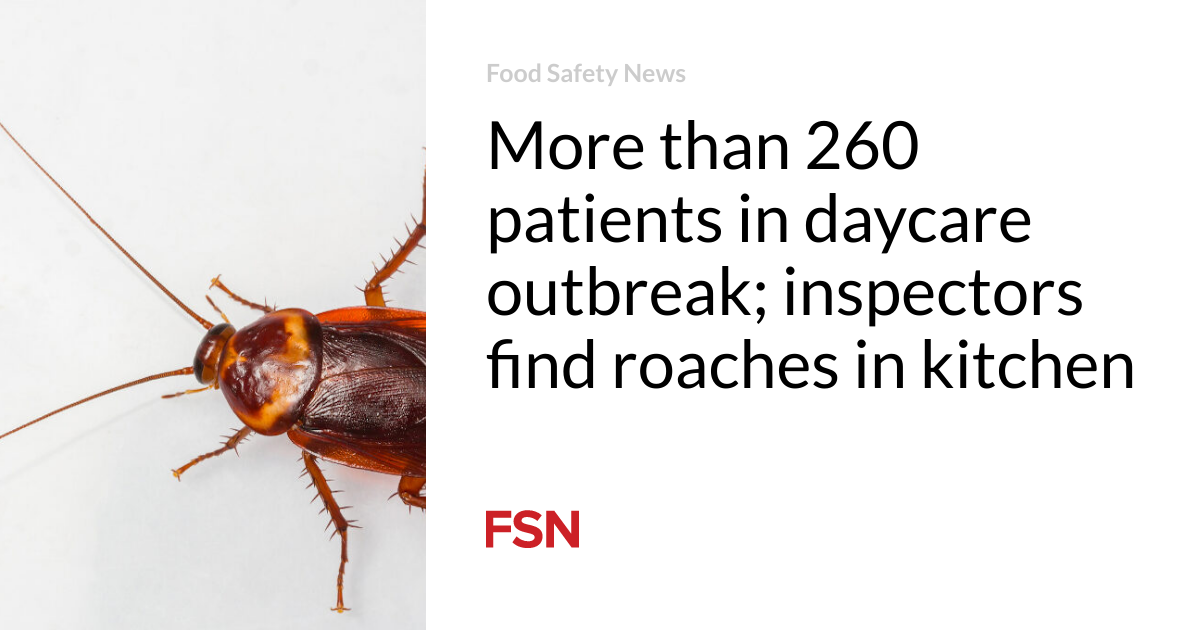Infection
More than 260 patients in daycare outbreak; inspectors find roaches in kitchen
Overnight, more patients were lab-confirmed as being infected with E. coli, bringing the total to 264 people infected in an outbreak linked to daycare centers in Calgary, Canada.
A total of 37 outbreak patients have required hospitalization, and 25 remain hospitalized. Of those remaining in the hospital, 22 have been confirmed by Alberta Health Services as having developed hemolytic uremic syndrome, a type of kidney failure. Six children are receiving dialysis.
Eleven daycare centers were temporarily closed because of the outbreak, with patients coming from six of them. All of the centers are now open at the discretion of their operators, provided no staff or attendees test positive for E. coli.
The daycare centers use a central kitchen, KidsU Centennial – Fueling Minds Inc. A health inspection was initiated at the kitchen on Sept. 4 and it was closed on Sept. 5.
Alberta Health Services collected leftover foods and frozen foods last week for testing. The health service continues to report that it has not been able to determine a specific food as the source of the E. coli O157:H7.
However, a kitchen inspection report shows an infestation of cockroaches and problems with equipment, along with other violations. Live cockroaches were on the sides of equipment around the dishwashing area and “tin cat traps by the two separate two-compartment sinks had at least 20 cockroaches on the sticky pads each,” according to the inspection report.
“The operator indicated that cold foods were being transported to other locations in excess of 90 minutes without temperature control. Appropriate equipment for keeping food cold during transport was not available,” inspectors reported.
Other problems found during the inspection included a sewer gas smell, a food thermometer stored in a bucket with non-cleanable items, and a large pool of water under an upright cooler.
The daycare centers that received food from the central kitchen and were temporarily closed were:
- Fueling Brains Braeside — illnesses reported
- Fueling Brains West 85th — illnesses reported
- Fueling Brains New Brighton — illnesses reported
- Fueling Brains Centennial — illnesses reported
- Fueling Brains Bridgeland — illnesses reported
- Fueling Brains McKnight — illnesses reported
- Braineer Academy — cautionary closure
- Kidz Space — cautionary closure
- Little Oak Early Education (formerly Mangrove) — cautionary closure
- Almond Branch School — cautionary closure
- Vik Academy in Okotoks — cautionary closure
About E. coli infections
Anyone who has developed symptoms of E. coli infection should seek medical attention and tell their doctor about their possible exposure to the bacteria. Specific tests are required to diagnose the infections, which can mimic other illnesses.
The symptoms of E. coli infections vary for each person but often include severe stomach cramps and diarrhea, which is often bloody. Some patients may also have a fever. Most patients recover within five to seven days. Others can develop severe or life-threatening symptoms and complications.
About 5 percent to 10 percent of those diagnosed with E. coli infections develop a potentially life-threatening kidney failure complication, known as a hemolytic uremic syndrome (HUS). Symptoms of HUS include fever, abdominal pain, feeling very tired, decreased frequency of urination, small unexplained bruises or bleeding, and pallor.
Many people with HUS recover within a few weeks, but some suffer permanent injuries or death. This condition can occur among people of any age but is most common in children younger than five years old because of their immature immune systems, older adults because of deteriorating immune systems, and people with compromised immune systems such as cancer patients.
(To sign up for a free subscription to Food Safety News, click here)

